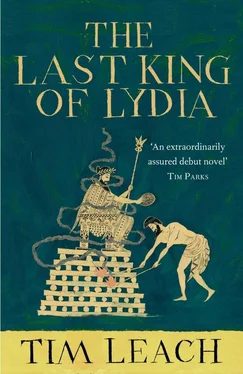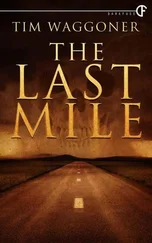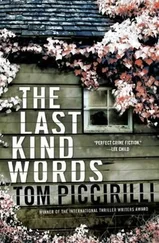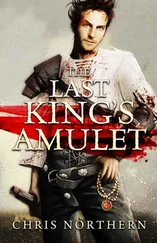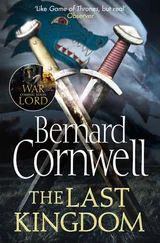Tim Leach - The Last King of Lydia
Здесь есть возможность читать онлайн «Tim Leach - The Last King of Lydia» весь текст электронной книги совершенно бесплатно (целиком полную версию без сокращений). В некоторых случаях можно слушать аудио, скачать через торрент в формате fb2 и присутствует краткое содержание. Год выпуска: 2013, ISBN: 2013, Издательство: Atlantic Books Ltd, Жанр: Исторические приключения, на английском языке. Описание произведения, (предисловие) а так же отзывы посетителей доступны на портале библиотеки ЛибКат.
- Название:The Last King of Lydia
- Автор:
- Издательство:Atlantic Books Ltd
- Жанр:
- Год:2013
- ISBN:9780857899200
- Рейтинг книги:5 / 5. Голосов: 1
-
Избранное:Добавить в избранное
- Отзывы:
-
Ваша оценка:
- 100
- 1
- 2
- 3
- 4
- 5
The Last King of Lydia: краткое содержание, описание и аннотация
Предлагаем к чтению аннотацию, описание, краткое содержание или предисловие (зависит от того, что написал сам автор книги «The Last King of Lydia»). Если вы не нашли необходимую информацию о книге — напишите в комментариях, мы постараемся отыскать её.
The Last King of Lydia — читать онлайн бесплатно полную книгу (весь текст) целиком
Ниже представлен текст книги, разбитый по страницам. Система сохранения места последней прочитанной страницы, позволяет с удобством читать онлайн бесплатно книгу «The Last King of Lydia», без необходимости каждый раз заново искать на чём Вы остановились. Поставьте закладку, и сможете в любой момент перейти на страницу, на которой закончили чтение.
Интервал:
Закладка:
Whenever he could escape his army of helpers and drive away the children who were assigned to play with him, he would run to some abandoned room in the palace and there hold court. As soon as he was sure he was quite alone, he would construct a throne: an upended wicker basket, a chipped stone step, an old, high chair that he had to clamber on to. He needed nothing more than this. His shyness had made him secretive, and he learned to make do with this single prop which could resume its usual function as soon as he stood away from it and affected to ignore it. Ideally, the room he adopted as his court would also feature an obsidian mirror or a chunk of polished stone, and he would position himself so that from time to time he could glance at his own reflection and judge his performance.
Once seated on his makeshift throne, he had to wait only a few moments before the room filled with movement and noise. Generals and statesmen, slaves and guards; the air took shape to produce them all. The abandoned room became draped in rich silks, the floor tiled with gold, the tables littered with goblets of sweetened grape juice and Egyptian honeyed fruit.
Sometimes he held court as a silent king, barely moving, unspeaking. He would rule through the most minute gestures; a fractional nod of the head would be enough to reprieve a man from execution. A hand, held palm down, cutting briefly through the air to exile a traitor for ever. Two fingers straightened from a closed fist would silence an imaginary courtier as he spoke out of turn.
At other times, he would practise his oratory. He would rise from his throne (or hop down from it, depending on its height), strike a pose, and prepare to speak. He believed that the longer the speech, the greater and more persuasive it would be — the aim was not so much to speak clearly, but to speak continuously for as long as possible. He would deliver, even at a young age, rambling orations, lasting for more than half an hour, an apparently unending stream of words stitched together from speeches of his father’s, and from the pronouncements of kings in the stories his mother told him.
Croesus could not remember much more of his childhood than this. In the months that followed the death of his son, he explored the recesses of his mind, searching for an innocent memory to escape into, some moment that could make sense of the world again. He had only the vaguest sense of his early years, and while he could recall the occasional event, moments of particular joy and shame, the actual sensations were lost to him. Recalling the past, it was as if he somehow viewed another man’s memories, a man from some alien world that he could not understand. But this game of kings, that he had played ten thousand times in as many different ways, was the one memory he did still retain in all of its detail, and of all the times that he played the game, there was one instance that he remembered most clearly of all.
It was autumn, and he was eight years old. His mother was beginning to show the first signs of the wasting sickness that would end her life a year later. There would be no more innocence for him after that, and no more happiness for his father, Alyattes, but on that autumn day that pain was a long way off. His mother had fainted in court, and in the middle of the ensuing distraction he had managed to steal away for an hour of play.
He was in the middle of a speech, promising a dozen sacks of jewels and a hundred slave women to a wandering hero, when he became aware of an intruder at the doorway behind him. A scrape of leather against stone, the faintest sound of rustling cloth, were enough to let him know that he was being watched. Slowly, afraid of what he would see, he turned to face the doorway.
His father, Alyattes, stood there with a small, ambiguous smile on his face. He was a lean and wiry man, dressed in red robes that hung on him a little loosely. These robes tended to trip him up whenever he forgot himself and hurried somewhere, which was often.
Beneath his father’s gaze, the boy hung his head. His father was the only person Croesus could not rage at when he was caught unawares. In front of Alyattes, he felt the heat in his throat and lungs, the pain around the heart of a deep and confused shame. He stood still, awaiting and dreading the mocking remark, the reprimand or, worst, of all, the pretence that his father had observed nothing.
‘I am sorry to have interrupted you,’ Alyattes said lightly. ‘I thought you would want to know that your mother is recovering now.’
‘Should I go and see her?’ Croesus tried to keep the reluctance from his voice, but he knew it was there. He had no desire to return to the court and comfort his pale-faced mother. He wanted to finish his game.
‘In a little while. Can I show you something first? A new invention of mine.’
‘Of course,’ Croesus said quickly. The shame at being discovered would be with him for weeks, and he was relieved to have any distraction.
‘Come here.’ Alyattes went to one knee, and Croesus walked over to his father. ‘Close your eyes, and open your hands.’
Croesus felt a little object drop into his right hand. Keeping his eyes closed, he rolled it forward on to his fingers. Hard and cool and metallic, he could tell no more than that. He opened his hand, opened his eyes, and looked down at it.
It was an ugly thing. Small, like a shrivelled grape in size and shape, pale yellow in colour. It wasn’t even pure gold, he realized, recognizing the shade with an already practised eye, but electrum, an amalgam of gold and silver. An image was stamped on one side, but Croesus could not tell what it was. He asked his father.
‘It’s a lion.’
‘The sign of our household,’ Croesus said quickly, just as he would give an answer he knew his tutor would like. Looking again, he thought to himself that the design was like the drawing of a clumsy child.
‘Do you know what this thing is?’ Alyattes said.
‘No, Father.’
‘It is a coin. What do you think it is worth?’
‘Not very much.’ He expected to see anger on his father’s face, but Alyattes nodded calmly, as though this were the expected response. ‘Is that the wrong thing to say?’ Croesus said.
‘No, no, quite reasonable.’ Alyattes shrugged. ‘It’s a lump of electrum that any man could sift from the Pactolus. Not pure gold or silver, which is a shame. I should have liked it to be gold. You’re right — it should be worth very little.’ He leaned forward. ‘Can I tell you a secret?’
Alyattes pointed at the image of the lion. ‘Without that stamp, it is valued at whatever some metal trader tells you it is worth. With that mark, it’s worth as much as I say it’s worth.’
Croesus frowned, and tried to understand. Alyattes continued: ‘It’s harvest season, now. The farmers are gathering their wheat from the land.’ He reached out a finger and tapped the metal disc in Croesus’s palm. ‘If I say it is so, one of these coins will buy the crop of a poor farmer’s field. Forty of them, and you’ve got the worth of everything that farmer will ever produce. The entire value of a common man’s life, and I could put it into a bag that you could wear at your waist and you would barely feel the weight. Men will spend their whole lives chasing after these little pieces of marked metal. They will be willing to kill for them. Think about that.’
‘What will you do with it, Father?’
‘I will use it to raise an army, and go to war in the East.’ Alyattes reached forward and ran his hand through his son’s hair. ‘I will win you a great empire. Won’t you like that?’
Hearing this, Croesus tried to hide his disappointment. His father had gone to war several times already in the boy’s short life. Croesus liked to hear stories of the battles, but the wars took his father from him for months, sometimes even years, and they made his mother unhappy.
Читать дальшеИнтервал:
Закладка:
Похожие книги на «The Last King of Lydia»
Представляем Вашему вниманию похожие книги на «The Last King of Lydia» списком для выбора. Мы отобрали схожую по названию и смыслу литературу в надежде предоставить читателям больше вариантов отыскать новые, интересные, ещё непрочитанные произведения.
Обсуждение, отзывы о книге «The Last King of Lydia» и просто собственные мнения читателей. Оставьте ваши комментарии, напишите, что Вы думаете о произведении, его смысле или главных героях. Укажите что конкретно понравилось, а что нет, и почему Вы так считаете.
